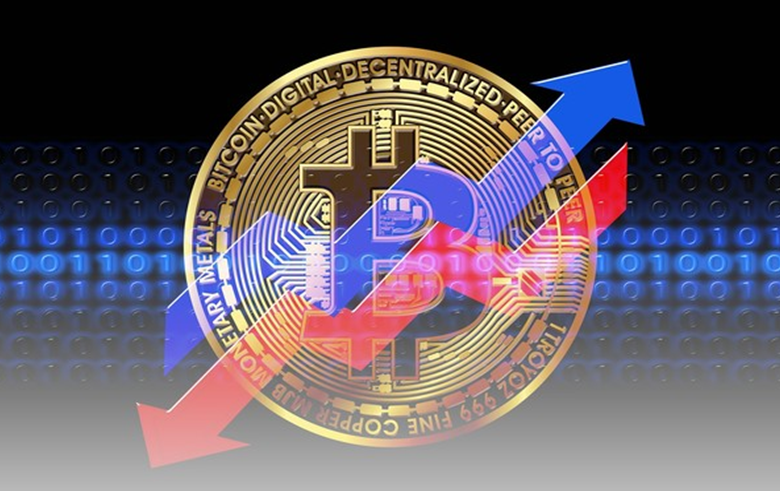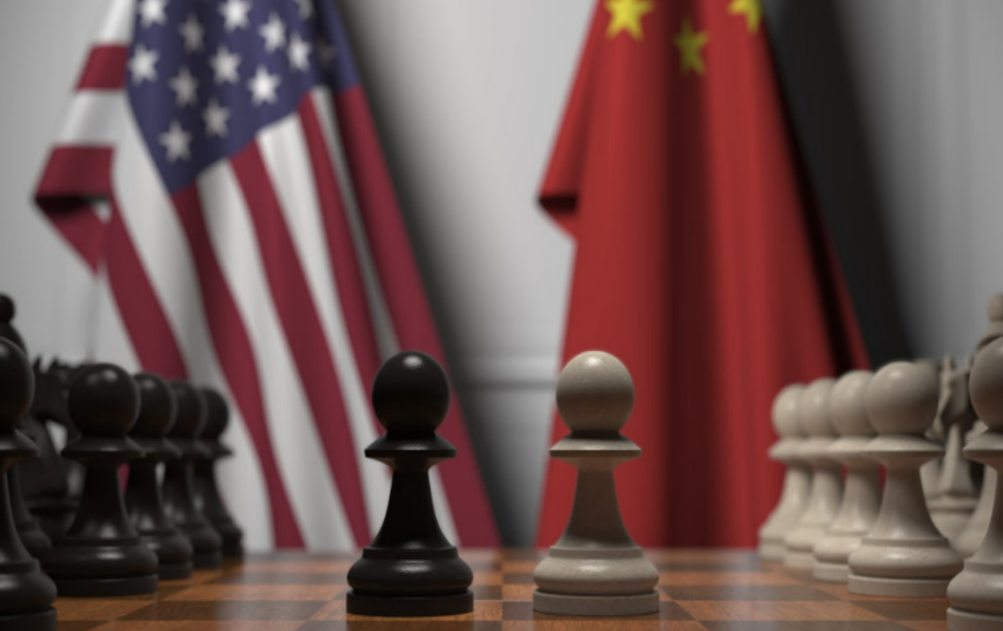At this time of the fourth Industrial Revolution, the response to digital trade is more important and urgent than ever before. Since it is being challenged to solve all digital trade barriers with existing trade norms, establishing new digital trade standards is a salient issue in data transmission and cybersecurity. The uncertainty caused by the COVID-19 crisis has created ideal moments for countries to uphold their commitments to international trade agreements. Accordingly, let's look at the global digital cooperation networks established by various countries, including the DPA and DEPA agreements, and think about the new direction of Korean diplomacy.
A New Era of Global Digital Connectivity
 |
With the increase in demand for digital financial services featuring non-face-to-face services since COVID-19, the transition of all economic sectors to digital commerce has progressed rapidly. Digital marketing, which refers to transboundary activities of countries by electronic means, has the advantage of allowing goods and services to reach more consumers and to reduce costs. However, to utilize the benefits of international digital trade, it is necessary to create a digital trade environment suitable for digital marketing where trade barriers are eliminated. The U.S. Trade Representative (USTR) has pointed out trade barriers in each country that become obstacles to U.S. companies in the digital sector under a new item called "Digital Trade Barrier," in its annual, since 2017, "National Trade Estimate Report on Foreign Trade Barriers." Among the many barriers, the most representative and widely known topic is 'data localization.’ Many countries demand data localization for cybersecurity, public service data protection, and personal information protection. Specifically, data localization means insisting that a country’s servers and computing facilities that help process data should be placed within the borders of their public powers. This data localization problem is a severe obstacle that prohibits data movement to other countries across borders and entails high costs for data-driven business enterprises. In addition, recently, in Korea, the need to establish digital trade norms is growing as controversy continues, such as the ‘Google tax’ (a tax imposed on IT companies that have avoided tax through overseas business sites). It is virtually impossible to expand international digital networks without a reliable trade environment based on transaction-related data, privacy protection devices, and effective online dispute settlement systems. Therefore, new cooperative digital trade agreements are essential to enhance online credibility and shape global norms for the new era of international digital trade.
Major countries are already actively establishing various digital norms in this trend. Through the ‘Declaration on Global Electronic Commerce,’ WTO member states promised not to impose tariffs on electronic transmissions. But in the end, there was a limitation in that they could not reach a specific agreement on norms. As multilateral discussions in organizations such as the WTO organizations were delayed, the United States began accelerating bilateral deals at the level of regional trade agreements to maximize the profits of its Internet platform companies. For example, on July 1, 2020, the U.S.-Mexico-Canada Agreement (USMCA) went into force. The USMCA, which replaced the North America Free Trade Agreement (NAFTA), promotes open access to public data and mutually benefits North American workers, farmers, ranchers, and businesses. In addition, the U.S.-Japan trade agreement, an independent agreement concluded in September 2020, established digital norms, including liberalization of cross-border data transfer and prohibition of server localization. The Indo-Pacific Economic Framework (IPEF), a comprehensive economic cooperation initiative proposed by U.S. President Biden at the East Asian Summit (EAS) in October 2021, also aims to strengthen further cooperation with friendly countries in the fields of digital trade and supply chains. In response to this, in an “e-today column” on January 24, 2022, Won-ho Yeon, a deputy researcher at the Institute for Foreign Economic Policy, emphasized digital partnerships, predicting that digital economic cooperation would be the first important discussion issue of the IPEF.
Korea-Singapore Digital Partnership Agreement (KSDPA)
As efforts to preoccupy the digital economy grown around the Asia-Pacific region, the Korean government also pushed for multilateral digital trade agreements. Accordingly, on December 15, 2021, the head of the Ministry of Trade, Industry, and Energy jointly signed the ‘Korea-Singapore Digital Partnership Agreement (DPA)’ with Singapore's Minister of Trade and Industry, Tan See-Leng. The DPA agreement, Korea’s first digital sector trade agreement, established common frameworks and rules for digital trade that will enable companies in Singapore to seamlessly connect with their overseas partners. The goals of the DPA are ultimately to lower the cost of operations, increase business efficiency, and create effortless access to more overseas markets. Unlike Free Trade Agreements (FTA) dealing with goods and services, it is an exclusive agreement stipulating trade norms related to the activation of e-commerce, cooperation in new digital technologies, and tariff-free digital products. Singapore’s Minister Chan Chun-sing, at the ‘Declaration of Initiation of DPA Negotiations’ held on June 22, 2020, said, "Singapore is happy to promote cooperation with South Korea through a digital partnership agreement that enables more access."
How Can Businesses Benefit from the DPA?
Singapore is Korea's 11-trade partner, and by signing a DPA in addition to the existing Free Trade Agreement (FTA), there is a possibility that digital trade between the two countries will increase. Singapore is also the center of ASEAN (Association of Southeast Asian Nations) and the most advanced digital hub country in the digital field. Singapore's representative e-commerce platforms, such as ‘Lazada’ and ‘Shopee’, have an enormous scale and network in the ASEAN region, so it can be expected that Korean products, such as agricultural food products and cosmetics, will advance into overseas markets in the East and West. Accordingly, on December 16, 2021, Yeo Han-gu, the head of the Ministry of Trade, Industry, and Energy, discussed investment in Korea with Singapore business leaders Jim Rogers, the world's top three investors, Dilhan Pillay, CEO of sovereign wealth fund Temasek, and group CBO James Chang.
 |
As Netflix videos produced by Korea attract worldwide attention, digital services based on the Korean Wave are also expected to gain more momentum. According to the Ministry of Trade, Industry, and Energy, the Korean film "Peninsula," released in Singapore on June 15, 2020, achieved high results with earnings of 14,700 Singapore dollars (about 12.72 million won). Kim Byung Kwon, director general and chief trade commissioner of the Korea Trade-Investment Promotion Agency (KOTRA), said that economic and cultural similarities between Korea and Singapore are the reason for the Korean Wave's success. Singapore is like Korean society in that per capita disposable income is high, and the number of people who do not marry is on the rise. As these Singaporeans became interested in Korean food and consumer culture through Korea’s dramas and movies, the emotional distance between Korea and Singapore became much more minor. The establishment of international digital norms has the value of further expanding exchanges between partner countries and moving a true partnership forward.
The Birth of the Digital Economy Partnership Agreement (DEPA)
 |
On June 11, 2020, New Zealand, Chile, and Singapore signed the world’s first Digital Economy Partnership Agreement (DEPA) remotely, using digital signatures. Thirteen years ago, three countries pioneered the first trans-Pacific trade agreement, laying the foundations for the Trans-Pacific Partnership (TPP-11), one of the few multinational efforts to agree on global rules for international trade. Those same three countries have now made history again. The purpose of the DEPA agreement is to comprehensively stipulate transparent and open digital trade norms on e-commerce facilitation, data distribution, and personal information protection in digital spaces called lawless areas and cooperation in new technologies such as artificial intelligence (AI) and fintech. Currently, small and medium-sized export companies that conduct e-commerce transactions often do not export properly due to problems with electronic payment infrastructure and electronic authentication. However, there is a possibility that export routes of companies will be opened if countries agree to restrict digital trade barriers through international norms specializing in digital trade, such as DEPA.
Several Countries Reviewing Accession to the DEPA Pact
 |
Recently, the Korean government, in its “2022 foreign economic policy promotion strategy,” included a policy to strengthen digital environment standards and expressed its goal to focus on digital cooperation projects. The government also explained that it is necessary to prepare for the transition to a digital economy by participating in discussions at the multi-country level. Thus, on September 13, 2o21, South Korea sought to join the Digital Economy Partnership Agreement (DEPA) formed by Singapore, Chile, and New Zealand to gain greater access to e-commerce and digital markets and to form stronger ties among the member countries. Korea is the first country to officially express its intention to join the DEPA and to proceed with the subscription process. This action is meaningful because it will expand the digital cooperation network in the Asia-Pacific region after the Korea-Singapore Digital Partnership Agreement (KSDPA) concluded in December 2021.
DEPA accession can be completed only after informal consultation, official membership application, the decision to initiate membership by the DEPA Joint Committee, acceptance of membership by the DEPA Joint Committee, and completion of internal procedures of the country that wishes to join. On January 27, 2022, the Ministry of Trade, Industry, and Energy held the first negotiation for Korea to join the DEPA. This is the first negotiation since Korea and the three DEPA countries officially declared the commencement of Korea's DEPA membership process at the Trade Ministers' Meeting (Paris) in October 2021, setting provisions for electronic payments, fintech, cybersecurity, public domain, and open government data in the digital economy. The Korean government aims to complete domestic procedures for joining the DEPA in the second half of 2022 by comprehensively considering opinions from academia, industry experts, and stakeholders. South Korea Chief Representative Yang Ghi-wuk said, "In preparation for the expansion of DEPA and its establishment as a platform for a global digital cooperation network, we will proceed with negotiations and complete the subscription quickly." He added, "As digital transformation accelerates after COVID-19, it is necessary to respond in the trade sector, and we will take the lead in responding to the establishment of digital trade order in line with this trend."

While China and Canada are also interested in joining the DEPA agreement, Chinese President Xi Jinping expressed his desire to enter the DEPA in a video address at the G20 summit held in Rome, Italy, on October 30, 2020. China's application to join the DEPA can be seen as a sign of its willingness to strengthen openness in the digital economy sector and actively participate in discussions on international trade norms. China has formed an independent digital order centered on control and management while keeping a distance from the order of the global Internet. For this reason, the Chinese Internet has been operating under the robust government control system of the Great Wall, and free access to YouTube and Facebook has not been guaranteed. Therefore, in response to this move, Chinese experts view China's accession to the DEPA as a means of confronting the US crackdown on Chinese technology companies. Zhang Yi (張毅), CEO of ‘iiMedia Research,’ in the Global Times (China) said, "There was no legal framework for internationally recognized digital trade, so there was friction with the U.S. government cracking down on the areas of Chinese Internet companies such as the ‘TikTok’ app." He also said, "China's accession to DEPA will accelerate the deployment of Chinese companies' digital businesses against the U.S. order." In light of this, the DEPA agreement is expected to develop into an essential digital platform as the number of member countries gradually expands in the future, with China and Canada also showing interest in joining.
The Effect of Establishing International Digital Trade Norms
According to an article by Inside US Trade reported on July 26, 2021, the U.S. CSIS (Center for Strategic and International Studies) evaluated the DEPA as a dialogue platform that can discuss digital issues and norm formation, reflecting the rapidly changing characteristics of the digital economy. The DEPA Agreement helps address global problems, such as technical standards for facilitating e-commerce, including electronic payments and invoicing, and rules for managing data flows between countries. Furthermore, the DEPA also aims to set standards for 5th generation wireless communication (5G) technology and ethical use of artificial intelligence (AI), which can support the participation of small and medium-sized businesses in digital trade by moving away from traditional trade transactions. When Korea joins the DEPA, it is expected that digital business opportunities will expand, and the foundation will be laid for strengthening cooperation among participating countries. DEPA participating countries can take the lead in international discussions on digital trade if they even seek to discover specific cooperative projects and establish normative standards. Yang Ki-Wook, the Free Trade Agreement policy director at the Ministry of Trade, Industry, and Energy, said, "We expect to establish a network early to promote digital cooperation by joining DEPA." He also said, "In particular, we believe that strengthening cooperation in the field of new digital technologies will facilitate the successful implementation of the digital new deal policy that the government is actively pursuing."

Ahn Deok-Geun, a professor at Seoul National University's Graduate School of International Studies, said, "With soaring demand, content providers such as ‘Google,’ ‘Netflix,’ ‘Naver,’ and ‘Kakao’ are guaranteed the right to use the network, not to apply network neutrality. It is necessary to agree on international principles through agreements on what level the cost will be shared.” Therefore, it seems that efforts to form international digital network norms should be continued.
COVID-19 has underscored the importance of digital tools in all walks of life, including work, education, and health, yet international trade rules governing their use have lagged. Through innovative digital cooperation networks such as DPA and DEPA, the world can create trade norms that tackle many barriers in the digital economy. Therefore, it is time for the Korean government to pay more attention to these discussions and to promote related agreements that simultaneously develop new digital economic trade and achieve international cooperation.
최승빈 carpediem_oon@inha.edu
<저작권자 © 인하프레스, 무단 전재 및 재배포 금지>

![[보도] 제43대 총학생회 후보자 공청회 개최돼](/news/photo/202404/11686_5015_2626.png) [보도] 제43대 총학생회 후보자 공청회 개최돼
[보도] 제43대 총학생회 후보자 공청회 개최돼
![[보도] 제43대 총학생회 후보자 공청회 개최돼](/news/thumbnail/202404/11686_5015_2626_v150.jpg)
![[보도] 총학생회장 선거 열려···학생사회 대표자는?](/news/thumbnail/202403/11668_5014_266_v150.jpg)
![[보도] 무전공·계열제 논의···학생은 어디에?](/news/thumbnail/202403/11666_5011_2238_v150.jpg)
![[보도] 인하 70돌, 다양한 행사 이어져](/news/thumbnail/202403/11663_5009_165_v150.jpg)
